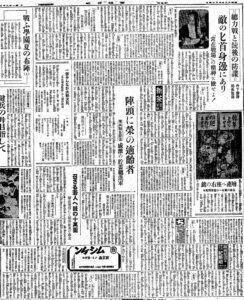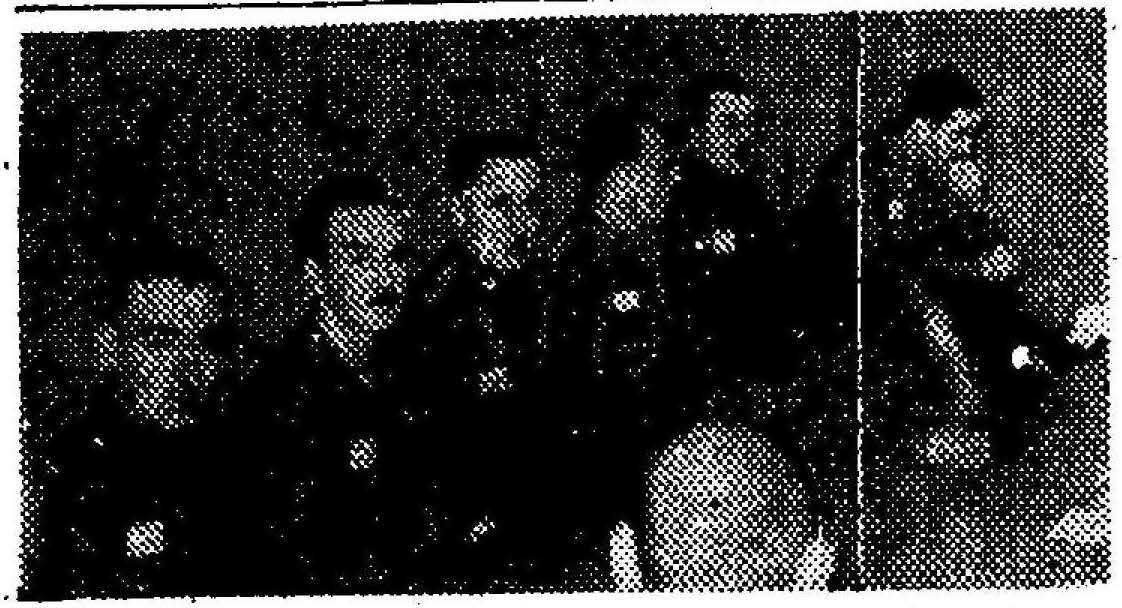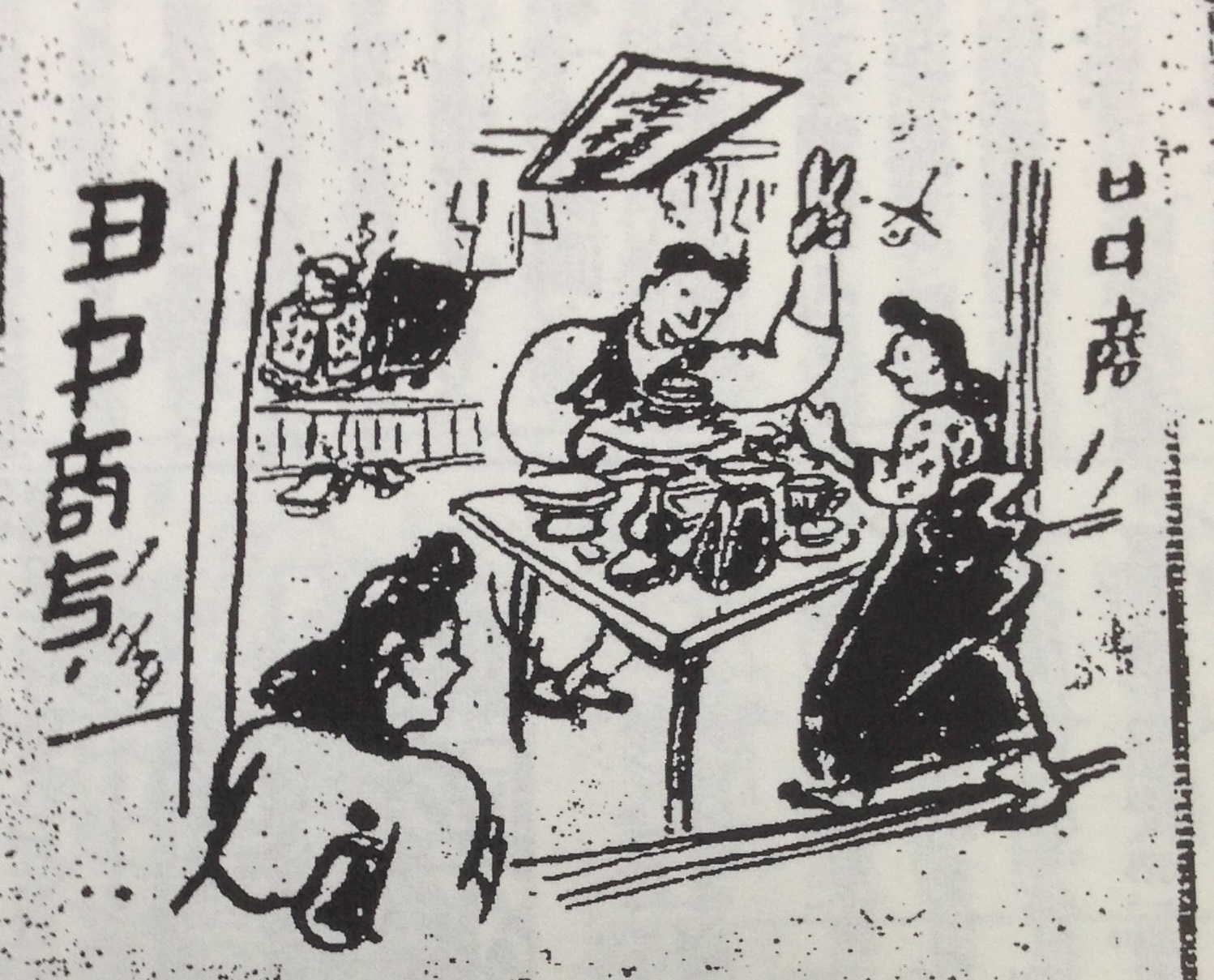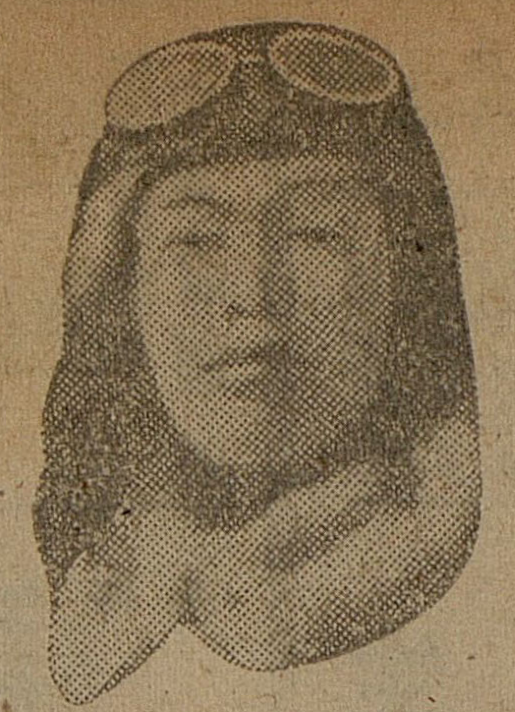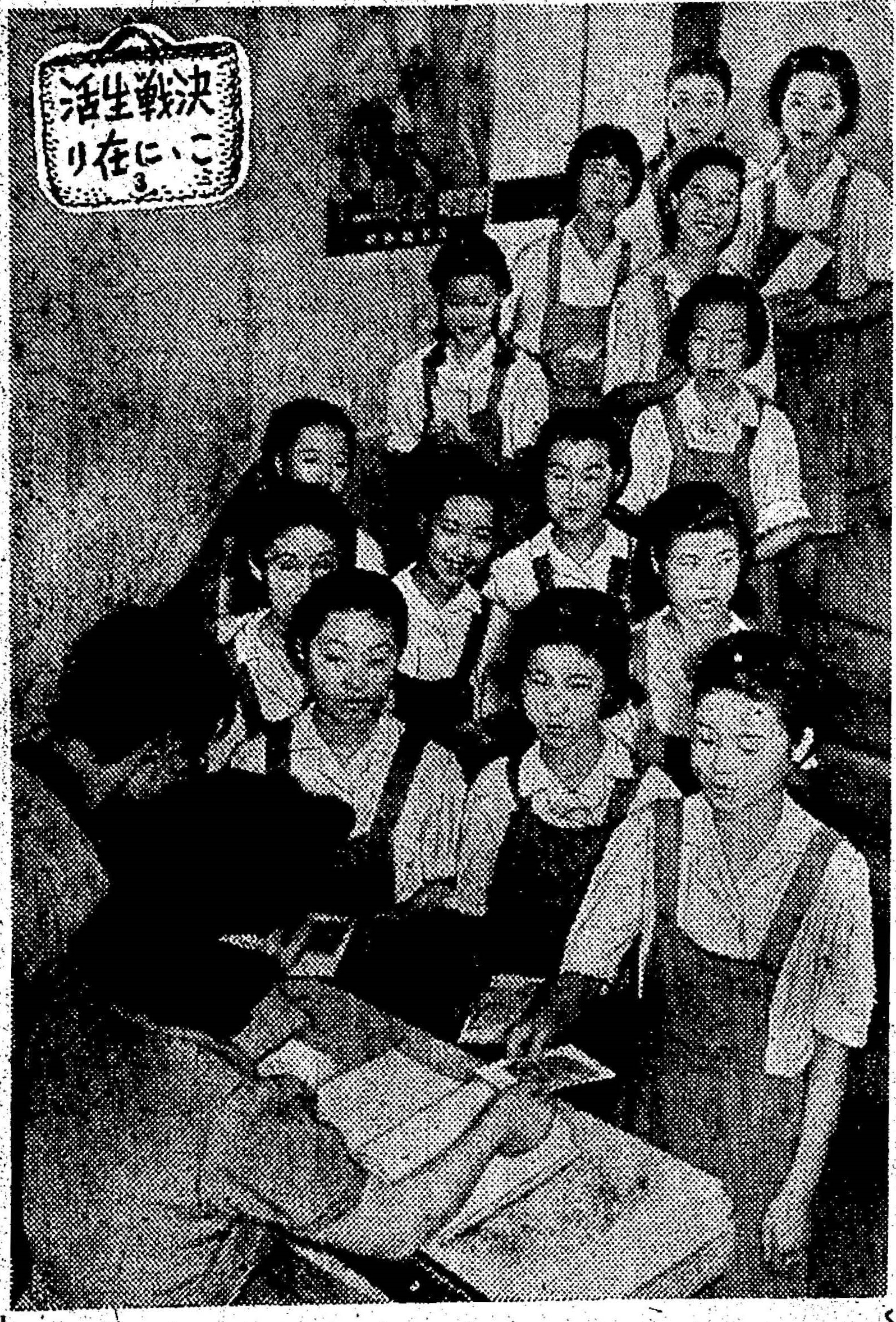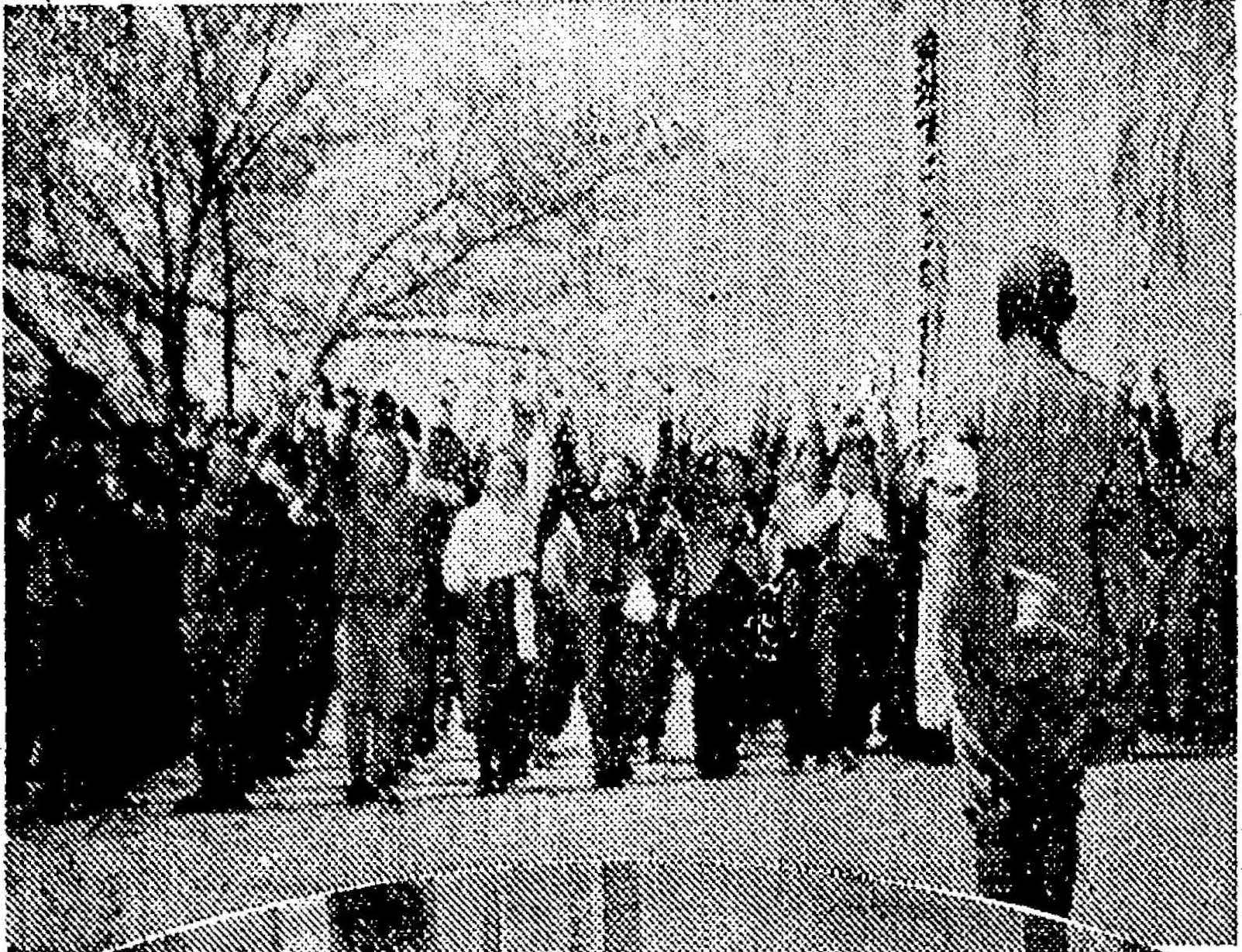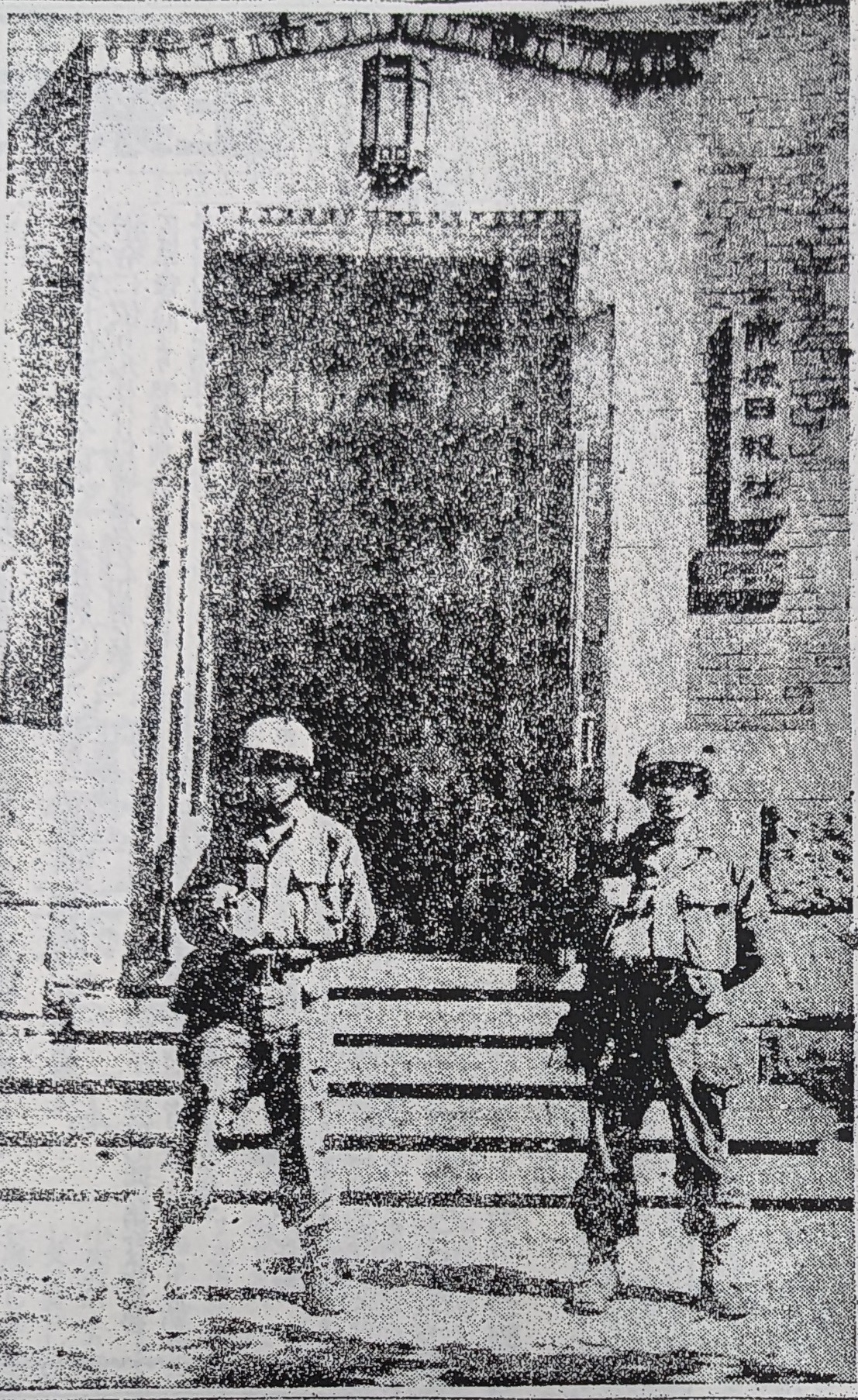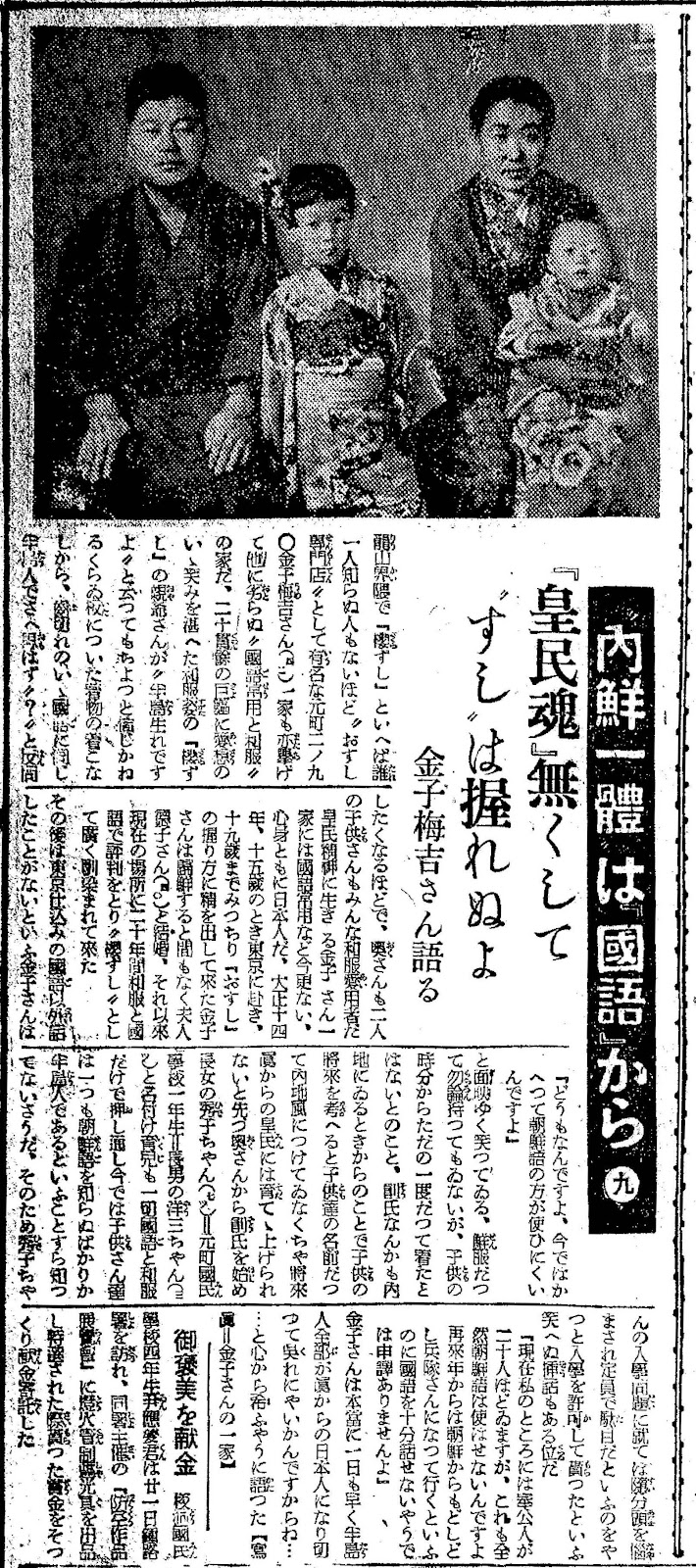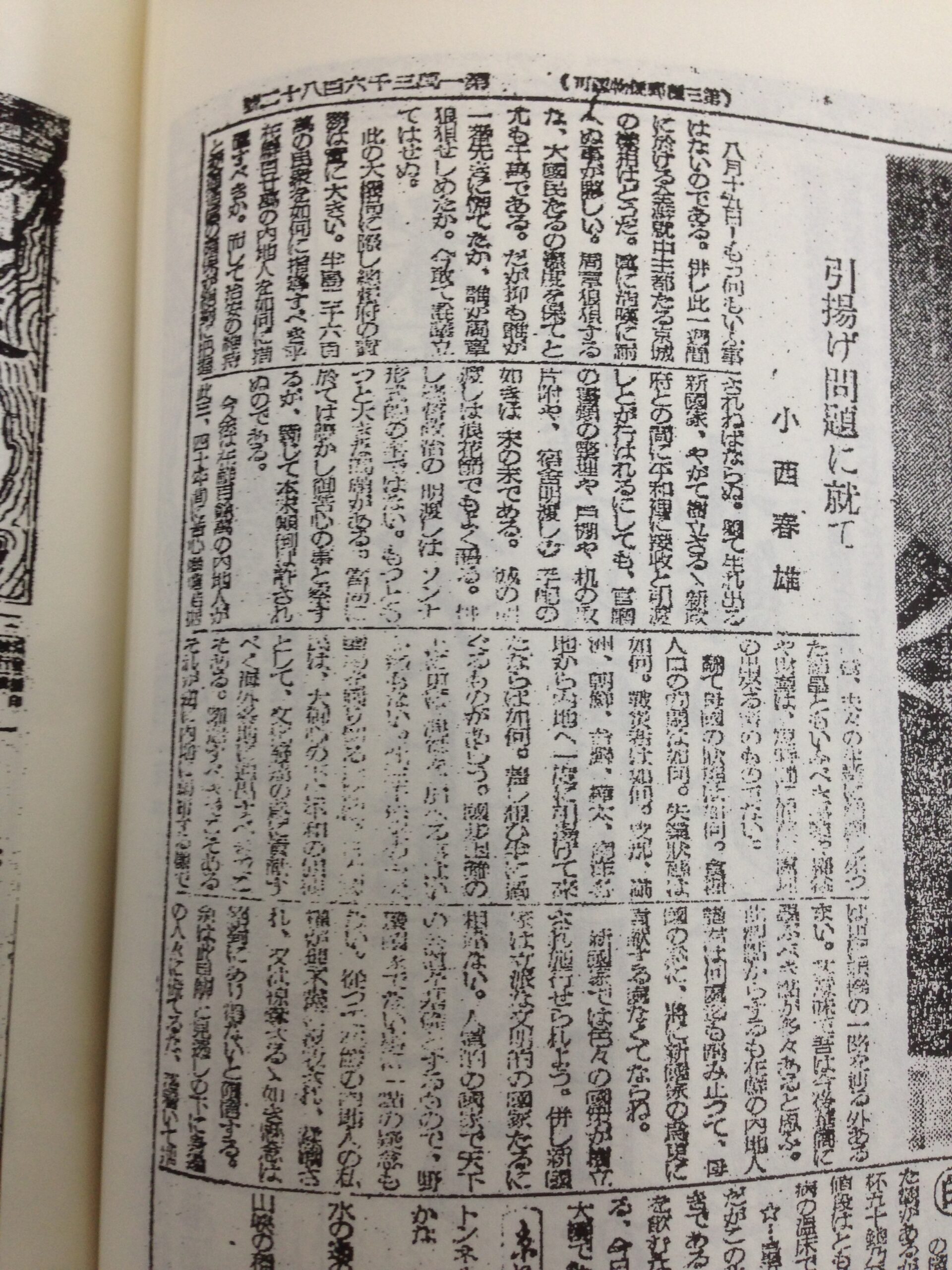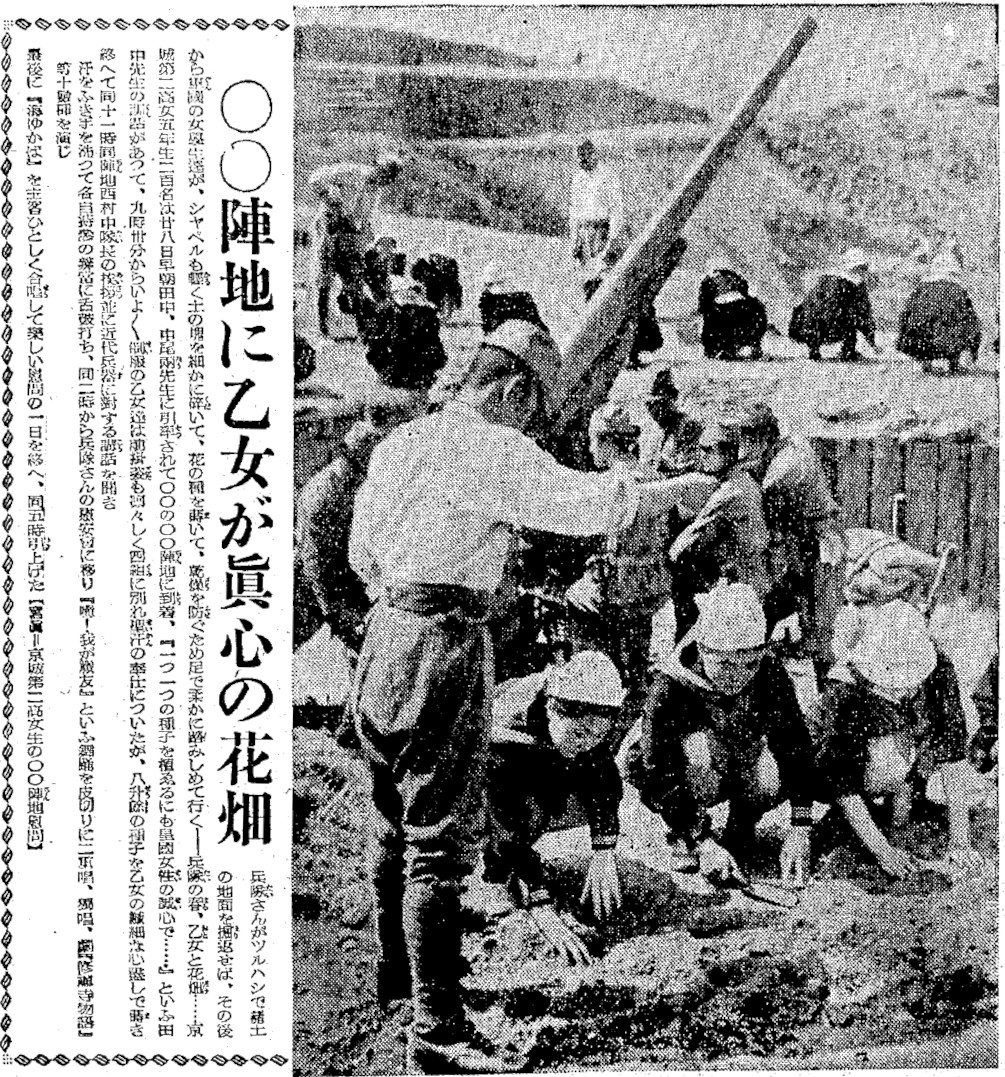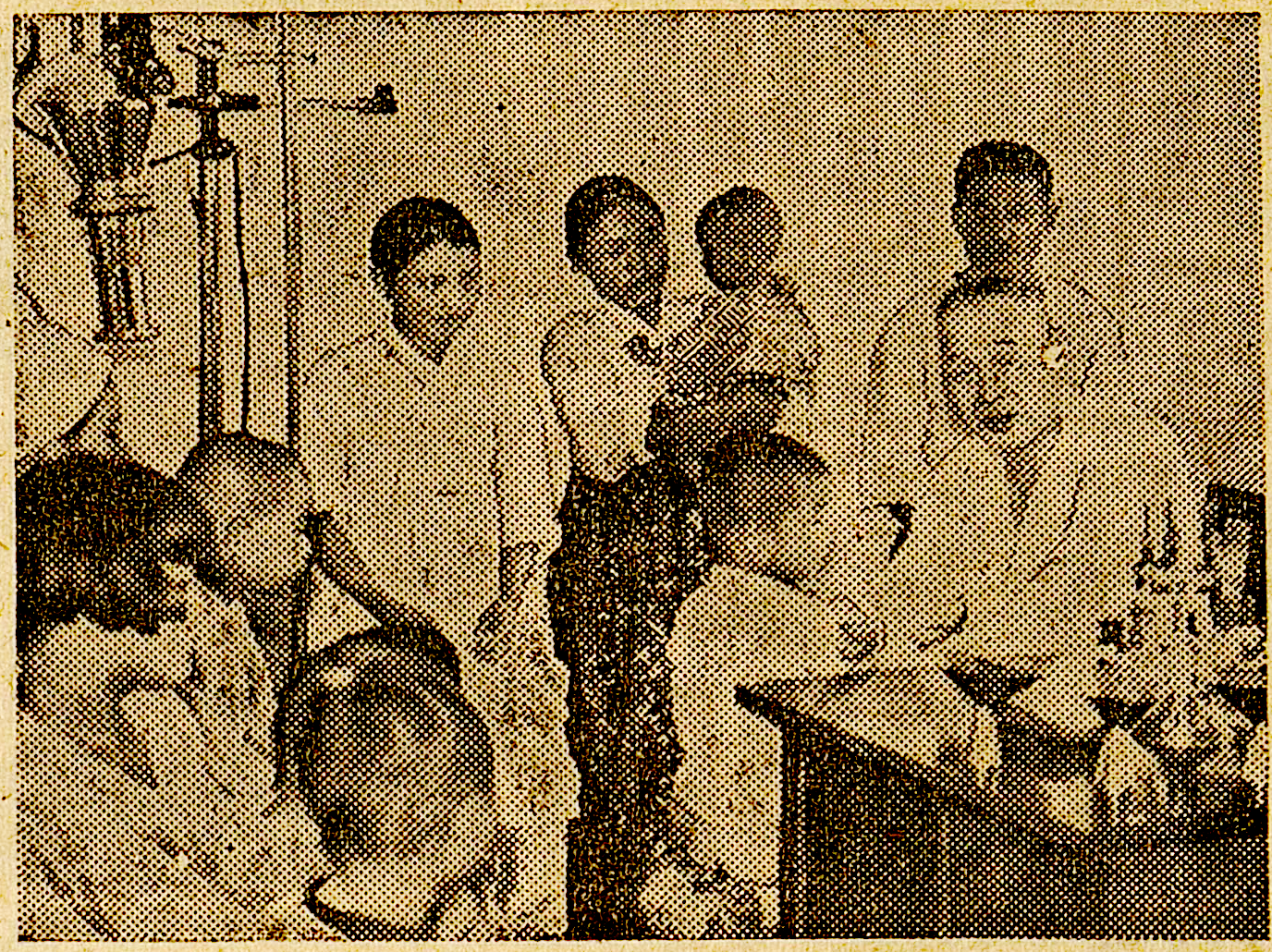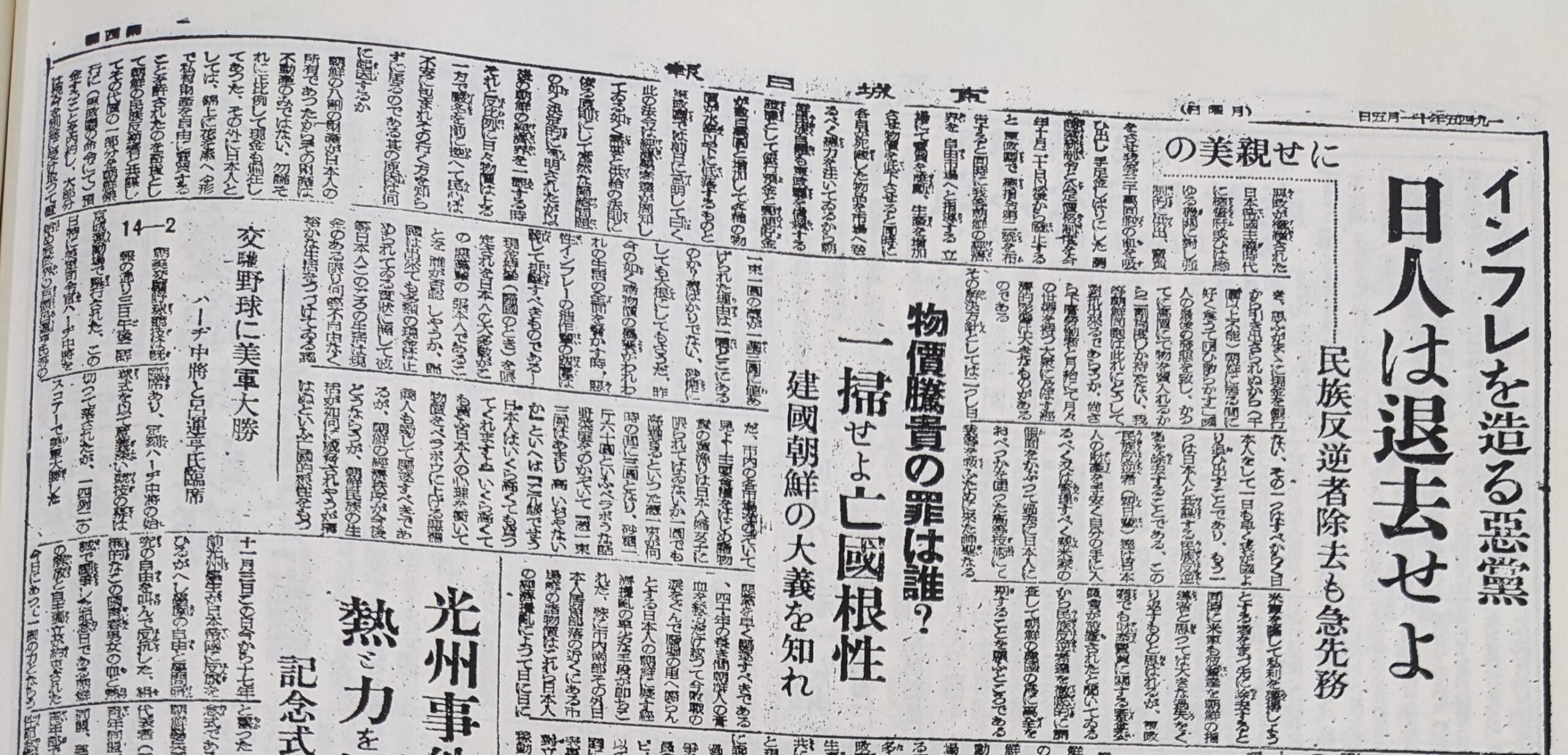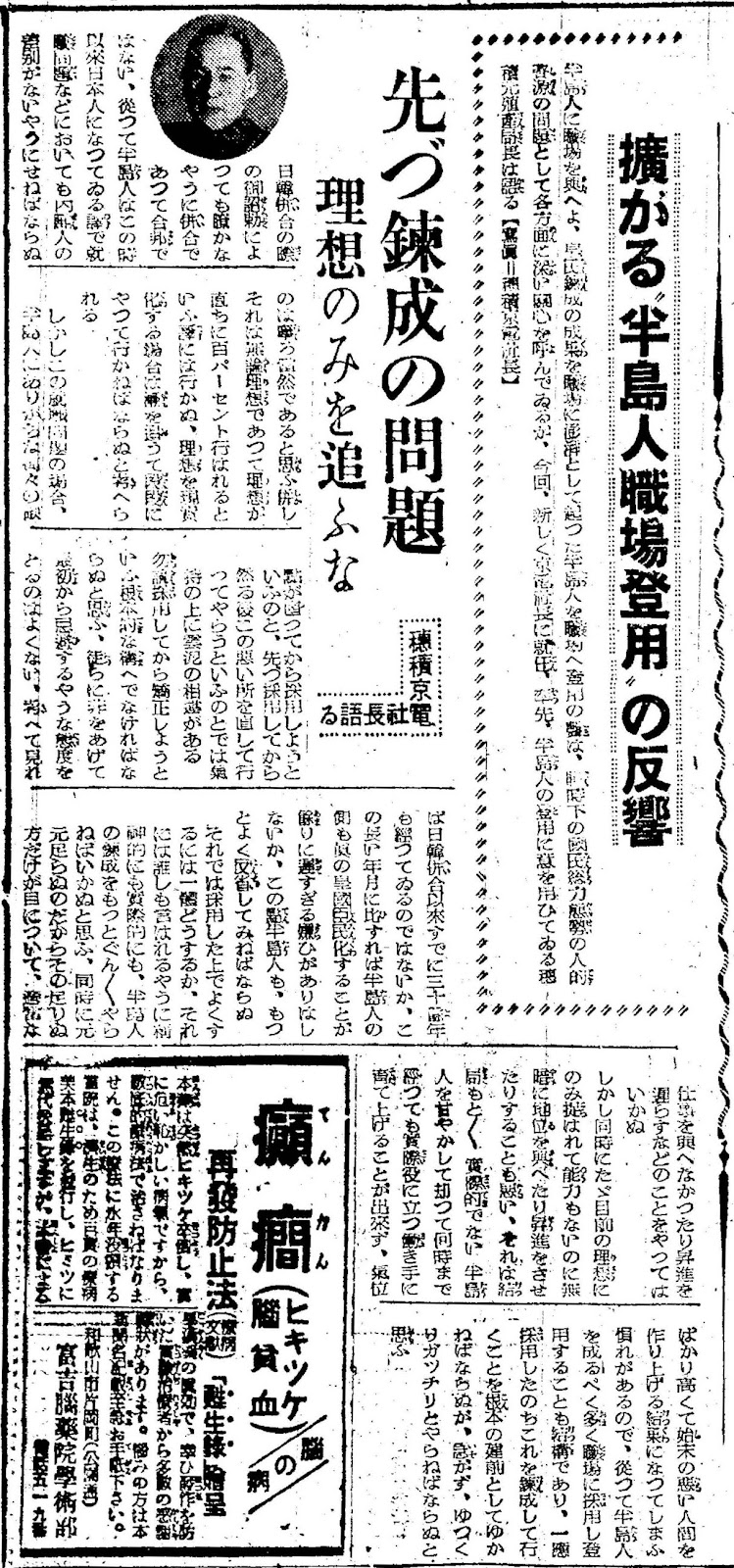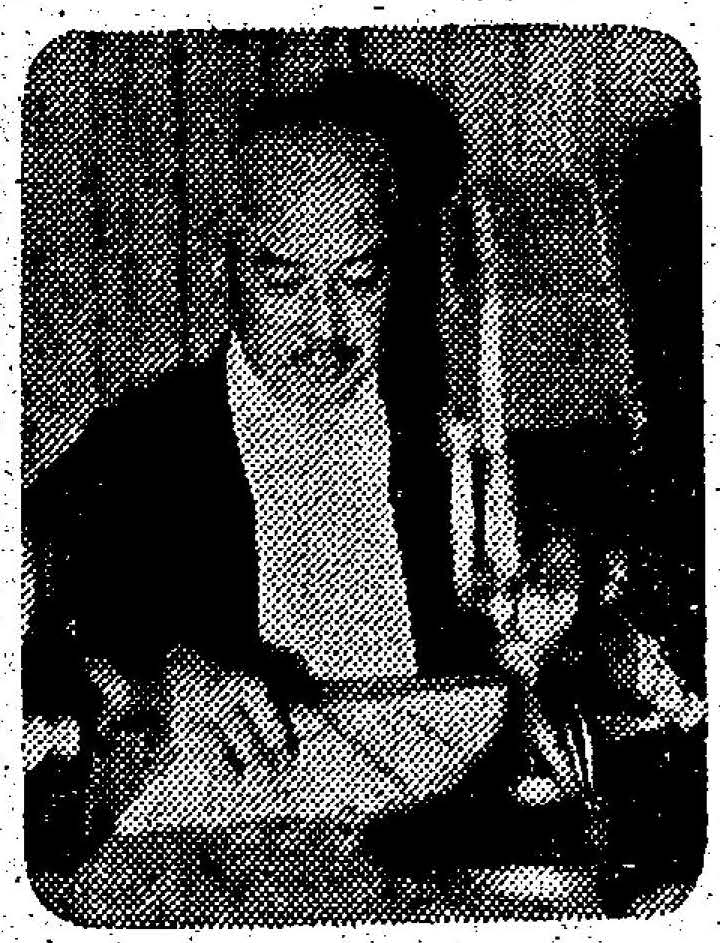
Imperial Japanese colonial regime instilled intense fear and paranoia among Koreans by forcing them to listen to this 20-minute radio broadcast mobilizing the entire nation in counter-espionage to snitch on each other even for complaining about food shortages (July 1943)
2023-08-07
484
2763
It’s been just over 80 years since a terrifying radio broadcast was delivered to the entirety of the Korean nation on July 13th, 1943. Considering this milestone, I felt it timely to share a translated transcript of that very broadcast, offering a window into the intense atmosphere of fear and paranoia that pervaded Korea during Imperial Japanese rule.
Its significance cannot be understated; it’s highly likely that every Korean at the time was compelled to listen to this 20-minute address by Police Chief Tange. If you’re Korean, think about it – your ancestors probably sat anxiously in front of the radio, absorbing every word of this speech that day.
In the article, I’ve highlighted specific passages, including those where the audience is directly encouraged to report on one another. There’s a detailed elaboration on the activities that colonial officials were most concerned about – these descriptions provide keen insights into what the regime perceived as threats, thereby revealing what resistance movements were likely attempting at the time. It’s truly awe-inspiring to consider that resistance activists managed to operate within Korea despite the overwhelming climate of dread and suspicion enforced by such broadcasts.
The contents of this radio broadcast are quite alarming. Koreans were integrated into Aegukban (Patriotic Groups), eerily similar to the Imperial Japanese Tonari-gumi or North Korean inminban institutions. These were essentially neighborhood cells comprising a few households. Each cell was overseen by a leader who made sure everyone complied with regime orders. On that evening of the broadcast, every Korean, as part of their respective Patriotic Group, was presumably gathered to listen in. While the broadcast was in Japanese, a language only approximately 15% of Koreans would have understood, assistants would have likely been translating the words into Korean on the spot for the broader populace.
The broadcast discussed matters of grave national importance, chiefly focusing on thwarting espionage activities. Alarmingly, even expressing discontent about food shortages was deemed a reportable offense. It’s not hard to visualize the palpable tension, with everyone wary of their own words and their neighbor’s actions.
For those interested, I’m also sharing a link to another radio broadcast that touches on similar themes of espionage and counter-resistance, though it’s notably less intense in tone than this one. It provides another lens through which to understand the era’s narratives and anxieties.
I understand that sharing propaganda from this period can be contentious. However, I believe it is important to shed light on the profound sense of fear and paranoia that pervaded Korea during that era. It’s only fitting that we remember the psychological suffering the Korean nation endured at that time. By revisiting these primary sources – propaganda radio broadcasts from the time – we gain a deeper understanding of the atmosphere that Koreans of that time lived in.
[Translation]
Gyeongseong Ilbo (Keijo Nippo) July 14, 1943
Total War and Civilian Counter-Espionage Defense (Broadcast by Director Tange of the Police Affairs Bureau)
The enemy’s dagger is near at hand
Devote yourselves to the spirit of “Ever on the Battlefield”!
The Counter-Espionage Defense Week for the annihilation of the US and Britain has been set up under a 25 million-strong ironclad regime, launching a major offensive simultaneously across all of Korea on July 13th. Director Tange of the Police Affairs Bureau delivered a broadcast entitled “Total War and Civilian Counter-Espionage Defense” for twenty minutes from 7:30 pm on July 13th. He explained the importance of unarmed strategy in counter-espionage warfare and how it can sway modern warfare, encouraging the entire Korean peninsula to rise up against the enemy’s network of schemes. The following is the essence of his broadcast. [Photo = Director Tange of the Police Affairs Bureau broadcasting]
Today, as we begin the Counter-Espionage Defense Week across all of Korea, I wish to express my thoughts and ask for the serious attention of all citizens. A year and a half has quickly passed since we received the Imperial Rescript declaring war. During this period, under the Great Authority of the Emperor, the splendid victories of our Imperial military are unparalleled in world history, and our country is now establishing an invincible regime across all of East Asia, on the verge of building a Co-Prosperity Sphere.
However, the last counterattack of the doomed US and Britain, fueled by their fully matured material civilization, is making a desperate struggle, revealing the true nature of their bestial brutality. The fight is becoming extremely harsh and intense. It reveals the unique aspects of modern total war that mobilizes all of human intelligence and manpower, not allowing any citizen, whether on the front lines or on the home front, to abstain from the battle.
The prominent characteristic of modern warfare is that it is not just a battle of military strength, but a fight that covers the entire nation, pitting the full strength of its people against each other. All methods that can be conceived using all human knowledge and ability are employed. The material and human elements of a nation are all mobilized for the war without exception. Everything is a weapon, and everyone is a soldier. Therefore, in this context, we who are the citizens under wartime must discern the essence of this modern total war, reflect on our daily lives, discipline ourselves, and raise our spirits. In terms of “counter-espionage defense,” I believe that it is necessary to deepen our understanding and put more into practice at this time.
What is counter-espionage defense? As it is already known, it is “preventing enemy intelligence activities” and “suppressing enemy conspiratorial activities.” “Intelligence activities” and “spy warfare” are not new issues; they have always been conducted alongside armed warfare and considered an important element of war. As stated in ancient military texts, “If you know your enemy and yourself, you will win every battle.” Efforts to “know the enemy” have been made through methods such as stealth or deceptive strategies and have produced many stories in the long history of warfare which adorn the pages of important military texts.
Therefore, the efforts to prevent and suppress these, that is, “counter-espionage defense,” is not a matter that was brought up only in modern times. However, the reason why it is being propagated so loudly today and is demanding strict practice from the citizens is indeed a natural consequence of the essence of modern total war, which mobilizes all citizens as fighting soldiers.
In past wars, as in the Battles of Shizugatake or Sekigahara, everything was decided by a confrontation between two armies in a confined battlefield, armed with swords and spears. The activities of spies to “know the numbers” were mainly to detect enemy forces, formations, and tactics, and they were sufficient. Therefore, efforts to prevent them, or the “counter-espionage defense,” were able to achieve their goals with mere military discipline, such as preventing enemy spies from infiltrating the camp and strictly maintaining secrecy among the soldiers.
However, in modern warfare, everything and everyone are elements of war, and the war is not necessarily fought only on what is called the front line, but is fought both domestically and abroad. Therefore, enemy intelligence activities are not just directed at the movements of armies and vessels on the front line, but they infiltrate deeply into the homeland, casting a thorough investigative eye over all the physical capabilities of the state, or in other words, over every field spanning industry, economy, finance, transportation, communication, etc., ranging from the production of military needs and weapons by the state to the daily consumption of food by the average family. They also pay sharp attention to the war capabilities of the people, or in other words, the organization of conscription mobilization, the composition of productive labor, and even the degree of uplift in war consciousness, and the completeness of the home front wartime system, etc.
These enemy spies, having obtained various pieces of intelligence in this way, communicate them quickly and effectively to their allies by shortwave radio and other methods, providing information for their operational tactics. This is indeed the original mission of spies, which should be called intelligence activities. However, the essence of modern total war does not limit spy activities to such passive intelligence activities, but further requires the development of aggressive conspiratorial activities. In other words, in modern warfare, spy activities have moved beyond merely detecting military and national intelligence, which are indirect and passive activities, to direct, proactive activities aimed at reducing and destroying the military power of the opposing country, in other words, all its physical and human capabilities.
In other words, they are trying to destroy physical capabilities by setting fire to and destroying important factories and mines, instigating strikes and sabotage, disrupting railway traffic, and so on, which result in reducing productivity, causing material losses, and hindering transportation and logistics. They do not care about their targets or their choice of methods, and even adopt extremely calculated malicious methods, such as causing chaos in the financial world. They further aim to disturb the financial sector, plunge the economic function into chaos, counterfeit and disseminate paper money, hoard and withhold goods, exaggerate and spread false information about high prices and shortages, all these are extremely calculated and malicious tactics.
On the other hand, they aim to lower human resources, overstate the enemy’s power to induce fear in our citizens, spread rumors that cause doubt about our war achievements, and disrupt the government’s leadership of the people, spreading defeatist sentiments by various means. They may even resort to spreading toxic substances or disease-causing bacteria in cities and other important places, threatening the lives and health of non-combatant citizens without any regard for the cruelty of their methods.
With the rise or fall of the state at stake, and as we now carry out this all-out war, it is natural to imagine that the devilish hands of enemy spies have infiltrated into the home front of wartime Japan, aiming to target each and every one of our daily lives with their relentless cruelty. They also focus their efforts on the Korean Peninsula, a crucial forward base for advancing into the Asian continent and an essential foundation for establishing the Greater East Asia Co-Prosperity Sphere. Their natural objective is to investigate, disrupt, and destroy the economic and military value of the Korean peninsula.
Considering that it has been just over thirty years since the annexation of the Korean peninsula, and the process of Imperial assimilation is still in its early stages, this creates a fragility in ideological unity. Enemies see this as the greatest vulnerability of Japan and, as such, they pour all their efforts into espionage activities here. They persistently attempt intelligence gathering and propaganda behind the scenes in the Korean Peninsula, striving desperately to weaken its military power. This is, of course, to be expected. In fact, this has been proven true. The numerous spy incidents that we have detected and suppressed by our own hands, both in terms of quantity and the cunning and nefarious nature of their plots, truly defy common imagination.
These spies disguise themselves as good citizens, seemingly leading exemplary lives in the home front as loyal subjects of Imperial Japan, doing everything to avoid arousing the suspicion of the public and authorities. Revealing their true identities using ordinary methods is extremely difficult, nearly impossible. People cannot guarantee that they have never before been neighbors with spies, ridden in the same vehicles as spies, or even sat in front of spies. There may be some who have unknowingly revealed important state secrets to these spies, believing them to be close friends. Phrases in our battle instructions like “Spies are always near” and slogans like “There’s a spy next to you” are not mere scare tactics.
Given this, how should we, each and every one of us in our daily lives, fend off and fight against these these spies who are disguised daggers? The first and foremost fundamental understanding is that each and every citizen is part of the state engaged in total war, and in modern total war, each and every citizen is a counter-espionage soldier. Even when we are on the home front, each of us, in our respective fields, is engaged in a brutal, absolute war of survival against espionage. We must bear in mind that we are all on the battlefields of Attu Island and the Solomon Islands, and only by embracing this understanding and standing together can we truly wage modern war.
Secondly, to physically manifest this understanding and stand together, we must perform our duties wholeheartedly. We must regard our workplace as the battlefield, fully devote ourselves to maintaining the secrecy of our tasks and protecting vital resources. If we push forward to increase the military strength of the state, we will leave no room for spies to operate. Thirdly, we must have absolute trust in the state’s measures, not only refraining from discontent and grumbling but also proactively cooperating with the state.
In war, one should always be prepared for death, and suffering and difficulties naturally accompany it. Shortages of supplies and the tightening of daily life are expected consequences of war. To be disheartened by these challenges, to complain about them, and worse, to fall prey to the lies and provocations of spies is utterly unacceptable for the citizens of a nation at war. Every citizen should consider it their duty to endure these hardships without complaint. If people refuse to feel the impact of shortages or express dissatisfaction, then no enemy propaganda, rumors, or tactics such as strategic hoarding or withholding of goods will have any significant effect. Just as soldiers on the front line follow their commanders’ orders and bravely charge into deadly situations, every citizen on the home front must faithfully follow the government’s policies. With such a resolution, even if spies employ their most cunning tactics, there can be no chance for negative thoughts to take root, like war-weariness or anticipation of defeat.
Fourthly, we must strive to root out the enemy spies among our one hundred million national people. With a fighting spirit of “seek the enemy and destroy,” we must consider ourselves as members of a nation constantly at war, even on the streets of daily life. No matter how cunning the spy may be, if we stay vigilant by being on the look out for the spies who have infiltrated among us on the home front, their true identities will be revealed in front of the discerning eyes of a hundred million national people.
We, the people, must relentlessly pay attention to weed out the enemy spies hiding among us. Whether they are beside us, or from within our own Patriotic Groups, if we detect any suspicious or doubtful individuals, we should act like scouts on the battlefield discovering enemy shadows and immediately report them to the police authorities, actively cooperating and assisting in their arrest and investigation. Each of us must consider ourselves as one of the fighting soldiers. Under this awareness, we should pay attention to our health and hygiene, strive to prevent and eradicate infectious diseases, and enhance our physical strength to completely block the enemy’s germ warfare tactics. It is an urgent task to fight on the front lines of this counter-espionage war.
Every individual is a member of a nation at war, united both on the front lines and on the home front, committing to the total effort of the state. Each person must deeply understand and be resolved to face their duties and battles as if they were in the trenches, defending to the death. In doing so, there will be no room for enemy spies or their tactics, leaving them without strategy and rendering their efforts inconsequential. Modern total warfare blurs the lines between the front line and the home front, turning everything into a grave battleground. The secretive tactics of spies targeting the home front have become so intricately complex that they defy common imagination, constantly probing into the daily lives of citizens. Especially now, as the US and Britain intensify their counteroffensive strategies in a bid to turn the tides of war, their espionage and strategic warfare become even fiercer day by day. Any momentary lapse in our vigilance can influence the overall strength of our nation. The fate of our Empire equally rests on the shoulders of those at home. Remember that every one of us carries this responsibility. Embrace Admiral Yamamoto‘s teachings of “Ever on the Battlefield” deep in your hearts, and in honor of the brave souls of Attu Island, be resolved to engage in the war against espionage with an unwavering dedication to victory.
[Transcription]
京城日報 1943年7月14日
総力戦と銃後の防諜 (丹下警務局長放送)
敵の匕首身辺にあり
『常在戦場』の精神に徹せよ!
米英撃滅の防諜週間が二千五百万鉄火の体制に構えられて十三日全鮮一斉に一大進軍を展開したが、丹下警務局長は十三日午後七時半から二十分に亘って”国家総力戦と銃後の防諜”と題し放送。防諜戦が如何に近代戦戦局を左右させるか、その武器なき戦略の重大さを説き半島あげて敵の謀略網撃滅に起ちあがるべきを促した。以下その放送要旨。【写真=放送する丹下警務局長】
本日より全鮮に亘り防諜週間が実施せらるるに当り、聊か所懐を申し述べ国民各位の深甚なる御留意を煩わしたいと思う。畏くも宣戦の大詔を拝してより早くも一年有半、其の間大御稜威の下、皇軍の赫々たる戦果は世界史上未だ曾て見ざるところであり、我が国は今や大東亜の全域に亘り必勝不敗の体制を確立し共栄圏の建設将に成らんとしつつある。
然し乍ら亡び行く敵米英の最後の反攻はその爛熟せる物質文明の全機能を傾注して死物狂いのあがきを試み、彼等本来の鬼畜の如き残忍性と相俟って闘いは正に苛烈凄愴を極めつつあり、人智人力の一切を挙げて、戦線銃後を問わず国民の如何なる一人をも戦わざるを許さざる近代国家総力戦の特異なる様相を現実に露呈している。
近代戦の著しき特徴は戦が所謂武力戦のみに限定されず、国家の全域を掩うて闘われ、国民の総力を傾倒して相撃つと言うところにあり、其の手段は人類の全知全能を尽くして考え得る総ての方法が使用されると言う處にある。国家の有する物的、人的の要素は其の一物をも余さず、その一人をも残さず悉く戦争に動員せられ、一切の物が兵器であり、総ての人が兵士である。茲に於いてか我我戦時下国民たる者は此の近代総力戦の本質を見極めて、毎日毎日の自己の生活を反省し、規律し、昂揚して行かなければならないのであって、『防諜』と言うことに就いても此際更に認識を深くし、且つ実践して行く必要があると考えるのであります。
防諜とは如何なることであるか。今更申す迄もなく、『敵の諜報活動を防止する』ことであり、『敵の謀略活動を制圧する』ことである。『諜報活動』、『スパイ戦』ということは今に始まった問題ではなく、昔からの戦のある處必ずこれに伴って行われ、武力戦に併行して戦争の重要な要素を成していたと考えられるのである。『敵を知り己を知る者は百戦百勝す』と古の兵書にも説いてある如く、『敵を知る』ための努力は或いは忍びの術となり、或いは反間苦肉の策となって古今幾多の戦史に纏綿する物語を産み、戦書の重要なる頁を飾る處である。
従って此等を防ぎ制圧せんとする努力、即ち『防諜』ということも亦必ずしも現代に至って初めて採り揚げられた事柄ではない。然るにこれが今日の如く喧しく宣伝せられ、国民に向かって厳重なる実践を要求せらるるに至った所以は、実に近代総力戦の本質が国民の総てを戦う兵士として動員するということから当然帰結せられた要請である。
即ち昔の戦争は、仮令賤ヶ岳とか、関ケ原とか言う様な一定の限定された戦域、戦野に於いて両軍が刀槍の間に対峙し相撃つことに依って総ての勝敗が決定せられた故に『数を知る』スパイの活動も専ら敵の兵力、布陣乃至は戦術と言うようなことの探知を以て事足り、従って之を防ぐ『防諜』の努力も陣営に於ける、敵諜者の潜入防止とか、兵士の秘密厳守等単なる戦陣軍律を以て其の目的を達し得た。
然るに近代戦に於いては一切の物、一切の人が戦争の要素であり、之を場所的に見ても戦争は必ずしも所謂第一線のみで闘われるとは限らず、国内外を通じて闘われるのである。故に敵の諜報活動も単に戦線に於ける軍隊、艦艇の行動に指向するのみではなく、深く銃後の国内に迄潜行して其の国家の一切の物的能力、言い換えれば産業、経済、金融、交通、通信其の他万般の分野に亘って一国軍需、兵器の生産から、国民一家の日常食糧の消費に至る迄周到なる探査の眼を注ぎ、国家の人的要素たる国民の戦争能力、言い換えれば徴兵動員関係、生産労務の構成、更に進んでは其の戦争意識の昂揚程度、銃後戦時体制の完成如何等に亘り、鋭敏なる聴耳を立てているのである。
而してこれ等敵スパイは斯くして得たる諸般の諜報を短波無電その他の方法を以て迅速効果的に味方に連絡し、これに依ってその作戦戦術の資料たらしむるのであり、これが即ちスパイ本来の使命というべき諜報活動である。然し乍ら近代総力戦の本質は、スパイの活動を単に此の種消極的諜報活動にのみ限定することなく、更に進んで積極的謀略活動の展開を要求するにいたった。即ち近代戦に於けるスパイの活動は単に軍情、国情の探知と言う、云わば間接的受動的なる活動から更に進んで相手国の戦力、言い換えれば其の一切の物的人的能力を減殺壊滅せしめんとする直接的能動的機能を発揚せんとするのである。
即ち物的戦力を破砕せんとして、重要工場、鉱山等の放火、破壊、ストライキ、サボタージュの扇動、鉄道軌道の交通妨害等、苛くも生産力の減殺を結果し、物資の損耗を招来し、交通運輸を阻害することであるならば其の対象を問わず、其の手段を選ばないのであり、更に進んでは金融界を攪乱し、経済機能を混乱に陥し入るる為、或いは紙幣を偽造撒布し、或いは物資の買い溜め、売り惜しみを為し、或いは物価高、物資難を大袈裟に捏造誇張して宣伝流布せしむる等極めて計画的な悪質手段をも採用するのである。
又一方人的戦力の低下を企図し、敵国の戦力を誇大に宣伝して国民の対敵恐怖心を誘発し、自国の戦果発表に対し疑惑を生ぜしむる流言を作為流布して政府の国民指導を混乱に陥入るる等陰陽様々の方法を以て国民の間に厭戦、敗戦思想を醸成蔓延せしめ、甚だしきは都市、其の他の重要個所に毒物、伝染病細菌等を撒布して非戦闘員たる国民の生命、健康に多大の脅威を加うる等、之亦残忍苛酷、方法を選ぶに何らの顧慮するところはない。
国家の興廃を賭し乾坤一擲の大戦争を遂行しつつある今日斯の如き戦慄すべき敵スパイの魔手が戦う日本の銃後に潜入し我々国民の一人一人の日常生活を目標として其の残虐飽く無き跳梁を試みんとし虎視眈々たるものがあることは当然想像せらるるところである。更に翻って我朝鮮半島に対する敵スパイの蠢動如何の問題を検討するに所謂大陸前進兵站基地として、将又大東亜共栄圏確立の基盤として極めて重要なる地位を占むる朝鮮の経済的軍事的価値の探知究明乃至之が攪乱、破壊等は敵側の当然企図すべき重点である。
況んや半島が併合後未だ三十余年、皇化日猶浅しと為し其の思想的団結に脆弱性ありと看做す敵にありては、乗ずべき日本の最大の間隙なりとして、そのスパイ活動の全力を此処にに傾注し、此の朝鮮半島の銃後に執拗なる諜報、宣伝を試み、半島の戦力減殺に必死の努力を為すべきは当然である。現にこの事は事実として顕われ、既往我々の手に依って検挙弾圧せる諸種のスパイ事件は其の件数に於いて其の巧妙悪辣さに於いて実に世人の想像に絶するものがる。
而して此等スパイは一見善良なる市民を偽装し表面的には飽く迄忠良なる皇国臣民として模範なる銃後生活を営み、以て世人、官庁の疑惑を招かざらんことを汲々として之努め、之が正体の暴露は通常の方法を以てしては極めて困難、不可能に近く、一部の人は過去に於いて彼等と軒を連ね、或いは同車、対座した事がないとも保証し得ないのであり、中には全くそのスパイたる事を知らず、之と親密に交友し同時の間にか心を許して之に国家の重要なる機密を洩らしたことがないとも限らない。即ち戦陣訓に言う『諜者は常に身辺にあり』と云う言葉や『君の隣にスパイがいる』等と云う標語の如きは単に徒なるら嚇し文句ではないのである。
斯くの如く我が国民の一人一人が其の日常生活の中に、身近に擬せられた此の敵の匕首―スパイ―之を我々は如何にして防ぎ、如何にして敲き落すべきであろうか。其の第一は、国民の一人一人が総力戦を戦う国家の国民であり、且つ近代国家総力戦に於いては国民の一人一人が防諜戦士であるという認識に徹底することが、先ず肝要な基本観念である。先に述べました如く、我々国民は仮令銃後に在っても各々の職域に於いて特に防諜戦士として喰うか喰われるかの苛烈、絶対の戦争を分担して居るのであり、各自皆アツツ島並びにソロモン群島に連りたる戦場に在ることを明記しなければならないのであって、国民の総てが先ずこの観念に徹しこの気持ちでがっちり手を組むことに依って初めて近代戦争とも成ることが出来るのである。
即ちその具体的現れとして第二に挙ぐべきは職域における挺身奉公の実践である。職域を戦場と心掛け、常在戦場の観念に徹し、全力を傾注して或いは機秘密の保持に或いは重要資源の保護に夫々の持場を死守し、スパイをして窺うべき一分の隙だになからしめ、国家の戦力増進に邁進するならば、如何なるスパイの活動と雖も施すに方法なき筈である。第三は国家の施策に絶対信頼し不平不満をいわぬばかりでなく、進んで之に協力することである。
戦は常に死を期すべきである以上苦痛、困難の伴うは当然にして、況んや物資の不足や日常生活の窮屈化は戦争には当然予想せらるることであって、之に辟易して不平を洩らし、延てはスパイの造言、煽動に乗ぜらるることが如きは戦う国の国民として全くあり得べからざることである。苛くも国民の一人一人がこれを忍び耐えることを以て当然の義務と観念し、不足を感ぜず、不満を口外せざるに於いては如何なる敵の宣伝も、流言も計画的買い溜め、売り惜しみの戦術も些したる効果をも収め得ない筈である。其の他恰も戦線悉くの兵士が司令官の命令に絶対服従し死地に挺身突撃するが如き覚悟を以て銃後総ての国民が政府の施策に信従するに於いては如何にスパイが秘策を施すとも厭戦、敗戦等の悪思想の胚胎するが如きことは絶対にあり得ないのである。
第四には進んで我々一億国民の敵スパイを剔抉することである。求敵必滅の敢闘精神を以て、日常街頭においても不断に戦う国家の一員であることを考え、銃後に潜入せるスパイの発見に心掛くるならば如何に巧妙なるスパイと雖も一億国民の炯眼の前には必ずや終にその正体を暴露するに至る。
国民は我々の中に潜む我々の敵スパイを、自分の隣から、自分の愛国班から摘発し剔抉する為に不断の注意を払い苛も不審、容疑の者あらば恰も戦場に於いて敵影を発見せる斥候の如く、直ちに進んで警察当局に申告し之が逮捕究明に積極的に協力援助すべきである。其他国民各自は戦う兵士の一人であるという覚悟の下に各自その保健、衛生に留意し伝染病の予防撲滅に努め体力の増進を図り敵の細菌戦術を完封する等防諜戦の大一線に敢闘することが刻下喫緊の急務である。
凡ては戦う国家の一員であり、戦線銃後一体の国家総力戦の戦士である事を心底より覚悟認識して職域、戦場に臨み職場を塹壕として死守敢闘するに於いては如何なる敵スパイも如何なる諜報謀略も働くに余地なく施すに策なく何等恐るるに足らない。之を要するに近代国家総力戦は戦線銃後の別なくあげてこれを凄愴なる戦場たらしめ銃後を狙うスパイの秘密戦術は世人の想像を絶する程度に愈々巧妙複雑を加え間断なく国民の日常生活を窺いつつあり、殊に頽勢を一挙に挽回せんとする米英の一大反攻作戦と相呼応してその諜報謀略戦は日一日と苛烈の度を加えつつあるから我々一人一時の油断は、全国家の戦力に影響し、皇国興廃の岐路は等しく銃後国民の双肩に負荷せらるる責任なることを銘記し『常在戦場』山本元帥の遺訓を各自の心とし、アツツ島の英霊に応え参らす覚悟を以て防諜の戦に絶対不敗の努力をなさなければならない。
Source: https://www.archive.org/details/kjnp-1943-07-14
